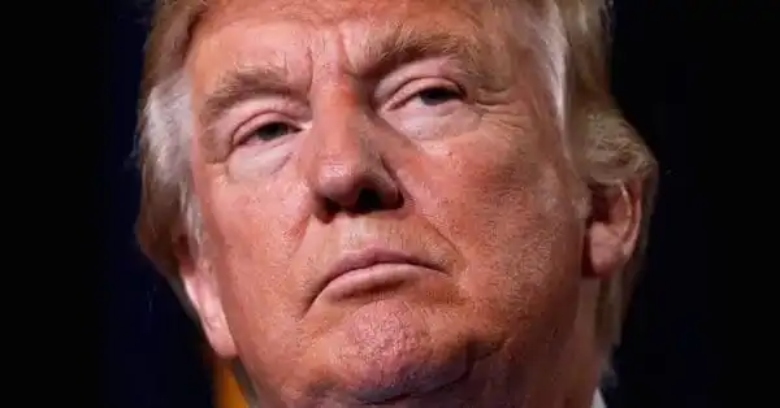The Supreme Court has denied President-elect Donald Trump’s emergency request to delay sentencing in his New York business records case, delivering a significant legal blow just days before his inauguration. The ruling has intensified debates over Trump’s legal troubles, with his supporters decrying the decision as a politically motivated attack aimed at undermining his presidency.
Trump’s legal issues stem from allegations by Manhattan District Attorney Alvin Bragg, who accused him of falsifying business records. Bragg alleged that Trump misclassified payments to his former lawyer, Michael Cohen, as business expenses rather than campaign-related expenditures. The payments were reportedly intended to silence damaging stories ahead of the 2016 presidential election.
Christian Talk Podcast
Despite pleading not guilty, Trump was convicted by a New York jury in what his legal team called a deeply flawed trial. The conviction, while not carrying jail time, represents a symbolic blow to Trump’s political momentum as he prepares to take office.
In an effort to delay the sentencing, Trump’s legal team filed an emergency petition with the Supreme Court, arguing that the trial was marred by procedural errors and constitutional violations. They asserted that the case should have been dismissed due to Trump’s claim of presidential immunity and raised concerns about the impartiality of Judge Juan Merchan, who presided over the trial.
“This is a blatant case of lawfare,” said Ken Klukowski, a senior legal contributor and Trump ally. “The Constitution demands that presidential immunity claims be reviewed before final judgment, and this case should never have reached this stage.”
In a narrow decision, the Supreme Court declined to intervene. Justices Amy Coney Barrett and John Roberts joined the liberal wing of the court, effectively denying Trump’s request. The ruling has left Trump’s allies outraged, accusing the court of failing to protect constitutional rights.
“This deeply disappointing ruling allows a partisan prosecutor to continue his unconstitutional attacks against the president-elect,” Klukowski said. “By a single vote, the Supreme Court has allowed this travesty to persist.”
The decision has fueled widespread criticism among Trump’s supporters, with some pointing to it as evidence of a biased judicial system. Senator Josh Hawley (R-MO) called the ruling “an egregious failure to protect the rule of law,” while others vowed to continue fighting the case in higher courts.
The timing of the ruling, just days before Trump’s inauguration, has sparked accusations that Bragg’s prosecution is politically motivated. Critics argue that the legal challenges are designed to distract Trump from his agenda and tarnish his presidency.
“This entire process is about one thing: stopping Donald Trump,” said a Republican strategist. “But the American people see through this. They elected him knowing about these attacks, and they’ll stand by him as he fights back.”
Trump’s legal team now shifts its focus to the appellate process, aiming to overturn the conviction. While the case presents a significant legal hurdle, it has also become a rallying point for Trump’s supporters, who view it as emblematic of broader efforts to stifle conservative voices.
For Trump, the case is likely to serve as a key narrative in his political journey. His allies argue that the legal battle underscores the need for judicial reforms and greater protections for presidential powers.
“This ruling may delay justice, but it won’t deny it,” Klukowski said. “President Trump will fight this battle through the appellate courts and emerge victorious.”
Despite the setback, Trump’s team remains optimistic that the case will ultimately be resolved in his favor. Klukowski speculated that the legal battle could take much of Trump’s upcoming term to conclude but expressed confidence in eventual vindication.
Trump is expected to use the case as a cornerstone of his narrative of resilience against political persecution. As he takes office, his ability to navigate these legal challenges will be closely scrutinized by both allies and opponents.
The Supreme Court’s decision, while a temporary defeat, is not the end of the road for Trump’s legal team. They see the ongoing fight as an opportunity to highlight what they believe are broader issues with the judicial system.
As the nation watches this drama unfold, the stakes extend beyond Trump’s personal legal battles. The case raises fundamental questions about the intersection of politics, justice, and presidential power, ensuring it will remain a focal point of national debate.
While the legal battle may be long and arduous, Trump’s allies are confident it will end with vindication and serve as a testament to his resilience in the face of relentless opposition.


Very dissapointing that this sham trial, corrupt judge, was allowed to go ahead with the sentencing. The supreme court justices could plainly see this was a totally political hit job from the left and the entire trial was a mockery of our justice system. President Trump could never get a fair trial in NY or any blue run city or state.
A total witchhunt and mockery of our justice system.
Well, just shows you we have two more WIMPS on the Supreme Court besides the three phony democrats to contend with. Barrett and Roberts should both declare themselves to be democrats since they show up more and more as RINOS, and forget about decency and good law and order.
Hopefully, all five of these weak-kneed individuals will be gone soon. I say TERM LIMITS for the Supreme Court, 10 years maximum.